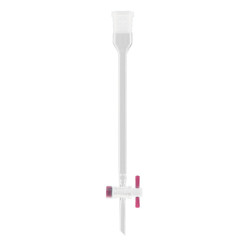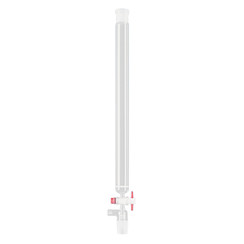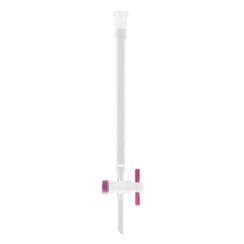You have no items in your shopping cart
Chromatography columns
Column chromatography (SC) refers to a chromatographic separation process in which, by definition, the stationary phase is contained in a cylindrical tube - the separation column. This so-called packing material can fill the entire cavity of the tube (packed column), or it can be applied only as a thin layer on the inner surface (capillary column). The latter case is limited to analytical capillary gas chromatography.
In this definition, the mobile phase does not discriminate whether it is a liquid (liquid chromatography), a gas (gas chromatography) or a supercritical medium (supercritical liquid chromatography), nor is there any information about the type of interaction between the stationary phase and the chromatographed differentiated substances ; it can be either adsorption chromatography or ion exchange chromatography, hydrophobic interaction chromatography, affinity chromatography or size exclusion chromatography.
However, in laboratory practice, column chromatography is most often used to describe liquid chromatographic processes based on the varying degrees of adsorption of the substances in solution (mobile phase) on a solid support (stationary phase) and which involve preparative purification of mixtures of substances of different polarities. in the microgram to kilogram scale.
It was developed in 1978 by W. Clark Still and others.
You can buy these Chromatography columns at Laboratory discounter with a fast delivery for a friendly price.



